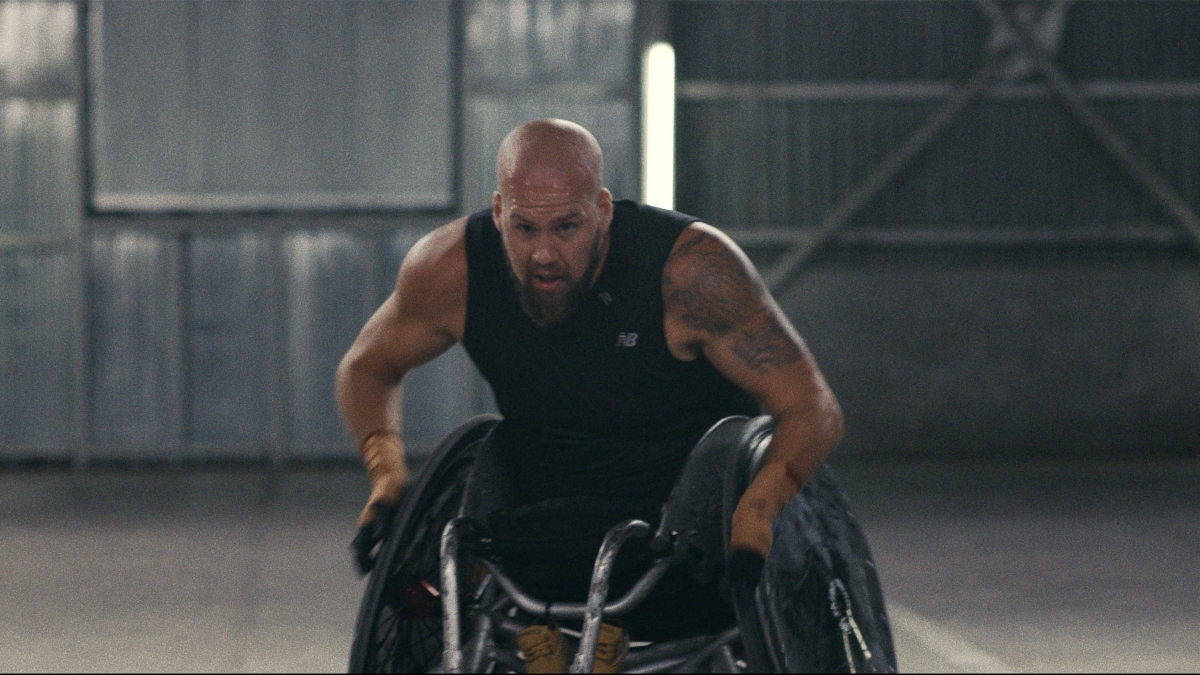
Rising Phoenix explores the lives of a few magnificent athletes during their time as competitors in the Paralympics. Rising Phoenix also serves as a symbol for what these extraordinary human beings are.
The documentary, directed by Ian Bonhôte and Peter Ettedgui, takes an in-depth look at these incredible and resilient people and shines a light on how truly undervalued the Paralympic Games can be to society at large.
Moreso, it shows how the Paralympics are, in some ways, more riveting than the Olympic games themselves.
Is this one of the documentaries on Netflix worth streaming? Here is our Rising Phoenix review and whether it’s worth watching.
Rising Phoenix review
In the documentary, Ian Bonhôte and Peter Ettedgui focused on a select few Paralympians who faced insane adversity and fought to become competitors in the Paralympic Games.
Some faced odds while living a normal childhood, while others faced incredibly heartbreaking trauma.
Sprinter and long jump competitor and champion Jean-Baptiste Alaize has one of the most brutal stories of all recounting his surviving days of the Burundian Civil War, telling the documentarians about getting disabled by attackers with machetes and then the same attackers ending his mom’s life.
The same can be said for wheelchair fencing champion Beatrice ‘Bebe’ Vio, who lost all her limbs due to a severe form of meningitis. Of all the Paralympians of the film, she seems the most fierce and is where the documentary gets its name.
Then there are other heartwarming stories such as Matt Stutzman, a competitive archer who uses his feet in competition–due to being born without arms.
The documentary does this wonderful balance of showing each of their backstories while ushing the story forward seamlessly.
And Stutzman’s story of growing up with parents who never said he couldn’t do something, including climbing a tree without arms, is humorous and inspiring all at once.

This tone is maintained through the film. The directors balance the backstory and the athlete’s relentless pursuit for a gold medal in less than two hours.
Nine competitors appear in the documentary, and given that runtime, that is not easy to do. This documentary could have easily been a 10-episode series considering how much is covered.
On a personal note, this review is written by a person of disability. And as someone who understands the significance of fighting through challenges, Rising Phoenix aptly demonstrates a common issue with society.
No matter the resilience, how mighty, or how successful most become in our conditions and/or impairments, the world at large finds little value or importance in giving persons with disabilities their due.
This is conveyed in alarming ways throughout the film. One of them spotlights how Russia would not even allow the Paralympics to happen during the 1980 event because the country itself does not even acknowledge disabilities.
Cui Zhe — a champion powerlifter from China also discusses how it took the Paralympics coming to Beijing just for her own family to see her value — because the country does not have a warmth to the disabled.

Sadly, as much progress as the United States has made throughout the years, this remains common here as well. As one person explains in the documentary, it is only more “subtle” in nature.
A major subplot that depicts this problem is that of the Olympics in Rio de Janeiro in 2016, where the Paralympics were shafted in funding and weren’t a priority.
And anyone who deals with any institution understands how common these situations occur with various leaders not seeing the importance of either supporting the disabled or their institutions.
But beyond all the politics and societal norms, Rising Phoenix is a powerful display of how ferociously Herculean these disabled athletes are. It’s one thing when an able-bodied person breaks records, and it’s another when one of these athletes do so.
And seeing the strength, effort, and perseverance endured for these Paralympians to achieve these records and medals makes this documentary worth viewing.
Coming from someone with physical limitations, it can be annoying being told, “you are an inspiration” because, in actuality, our lives are mostly normal day-to-day for us.
But here, the word “inspiration” is the only way it can be described.
As Rising Phoenix shows the various victories and the emotional response of said victory, it’s almost spiritual how moving the documentary becomes.
It will make viewers want to invest in the next Paralympics once the next one is rescheduled.
Overall Thoughts
The experience of watching Rising Phoenix was spiritually moving. Between this and Immigration Nation, Netflix has been breaking out the goods with emotional pieces about the overlooked and disenfranchised.
There are very few films and TV shows that depict the level of wonder these persons with disabilities are capable of and how undervalued they are in culture.
Rising Phoenix is the reminder of how much stronger we are capable of becoming despite being told “no” so many times. And these Paralympians are living proof of it.
Rising Phoenix is now streaming on Netflix.